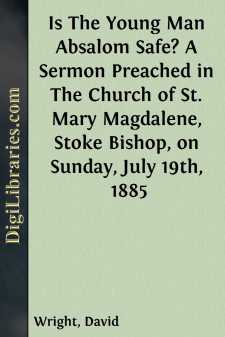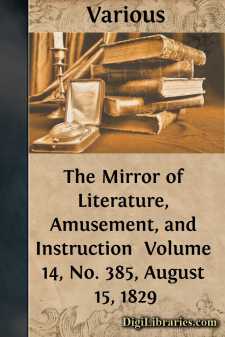Categories
- Antiques & Collectibles 13
- Architecture 36
- Art 48
- Bibles 22
- Biography & Autobiography 813
- Body, Mind & Spirit 142
- Business & Economics 28
- Children's Books 17
- Children's Fiction 14
- Computers 4
- Cooking 94
- Crafts & Hobbies 4
- Drama 346
- Education 46
- Family & Relationships 57
- Fiction 11829
- Games 19
- Gardening 17
- Health & Fitness 34
- History 1377
- House & Home 1
- Humor 147
- Juvenile Fiction 1873
- Juvenile Nonfiction 202
- Language Arts & Disciplines 88
- Law 16
- Literary Collections 686
- Literary Criticism 179
- Mathematics 13
- Medical 41
- Music 40
- Nature 179
- Non-Classifiable 1768
- Performing Arts 7
- Periodicals 1453
- Philosophy 64
- Photography 2
- Poetry 896
- Political Science 203
- Psychology 42
- Reference 154
- Religion 513
- Science 126
- Self-Help 84
- Social Science 81
- Sports & Recreation 34
- Study Aids 3
- Technology & Engineering 59
- Transportation 23
- Travel 463
- True Crime 29
Sort by:
by:
Samuel Maverick
The Committee on English Research of the New England Historic Genealogical Society called attention in their last annual report to the fact that there were in England many important documents relating to the American colonies, as well as manuscript maps hitherto unknown to historical investigators. They urged upon the society the desirability of having exact copies of them made now while we have in Mr....
more...
BIRDS THAT LIVE IN NESTING BOXES. Certain varieties of birds will nest in homes built for them if these houses are of the right shape and dimensions. Other birds may be just as desirable but do not build nests and rear their young in boy-made nesting boxes. We are therefore mainly concerned with the first group which select cavities in trees for their homes if nothing better is to be found. FIG. 1....
more...
Chapter VII. “Has anything gone wrong?” There was so much of interest and sympathy in her tone, as Joe put the simple question, that John turned and looked into her face. The magic of moonlight softens the hardest features, makes interest look like friendship, and friendship like love; but it can harden too at times, and make a human face look like carved stone. “No, there is nothing wrong,”...
more...
The ancestry of William Cullen Bryant might have been inferred from the character of his writings, which reflect whatever is best and noblest in the life and thought of New England. It was a tradition that the first Bryant of whom there is any account in the annals of the New World came over in the Mayflower, but the tradition is not authenticated. What is known of this gentleman, Mr. Stephen Bryant,...
more...
by:
Richard Johnson
My Beloved, I do not think it necessary to make an apology for putting this Address into your hands; or to enter into a long detail of the reasons which induced me to write it. One reason may suffice. I find I cannot express my regard for you, so often, or so fully, as I wish, in any other way. On our first arrival in this distant part of the world, and for some time afterwards, our numbers were...
more...
by:
Harold Frederic
CHAPTER I THE battle was over, and the victor remained on the field—sitting alone with the hurly-burly of his thoughts. His triumph was so sweeping and comprehensive as to be somewhat shapeless to the view. He had a sense of fascinated pain when he tried to define to himself what its limits would probably be. Vistas of unchecked, expanding conquest stretched away in every direction. He held at his...
more...
Chapter One GOOD-BYE—good-bye, Rosina!” cried Jack, giving one last violent wave to his handkerchief. And then he put it back in his pocket, because the crowd upon the deck of the departing Liner had now become a mere blur in the distance, and distant blurs seemed to his practical nature unworthy any further outlay of personal energy. “But oh!” he added, as he and Carter turned to quit the...
more...
by:
David Wright
SERMON. 2 Samuel xviii. 29. "IS THE YOUNG MAN ABSALOM SAFE?" The touch of nature comes out strongly here. And it is this touch of nature appearing always in the Old Testament stories which gives to them their reality. The writer of ordinary histories has for the most part his favourites. These are the heroes of his imagination, and the history of their doings is unconsciously tempered by this...
more...
by:
Various
HAMPTON COURT. Here is a bird's-eye view of a royal palace and domain "cut out in little stars." It is copied from one of Kipp's Views in Great Britain in the time of Queen Anne, and affords a correct idea of Hampton Court in all its olden splendour. The palace is situated on the north bank of the Thames, two miles west from Kingston. It was magnificently built by Cardinal Wolsey....
more...
by:
Henri Barbusse
CHAPTER I The landlady, Madame Lemercier, left me alone in my room, after a short speech impressing upon me all the material and moral advantages of the Lemercier boarding-house. I stopped in front of the glass, in the middle of the room in which I was going to live for a while. I looked round the room and then at myself. The room was grey and had a dusty smell. I saw two chairs, one of which held my...
more...











